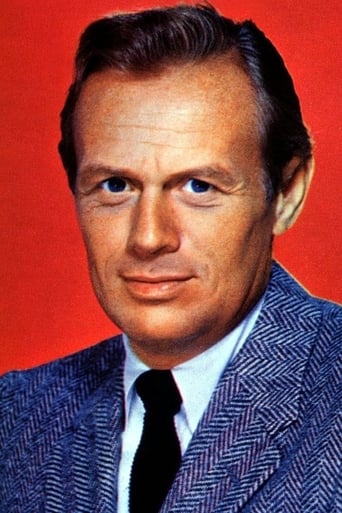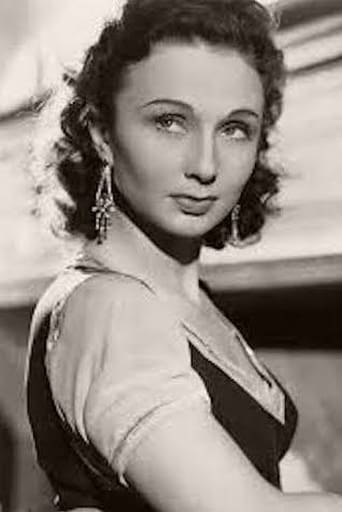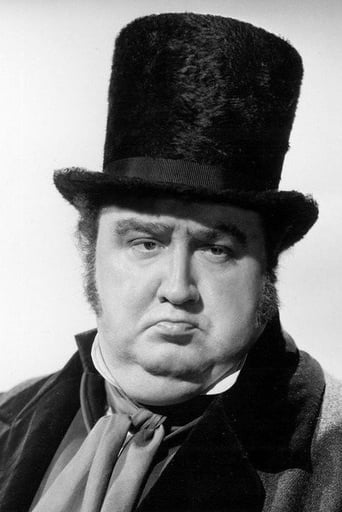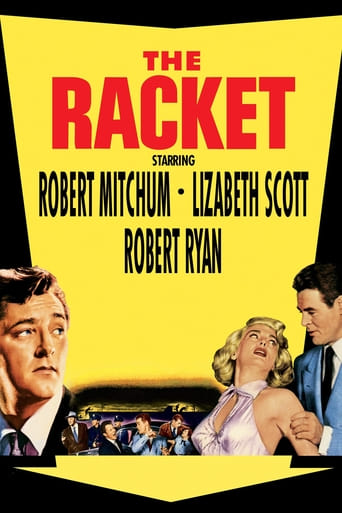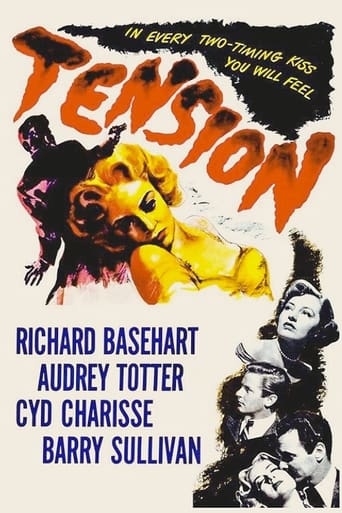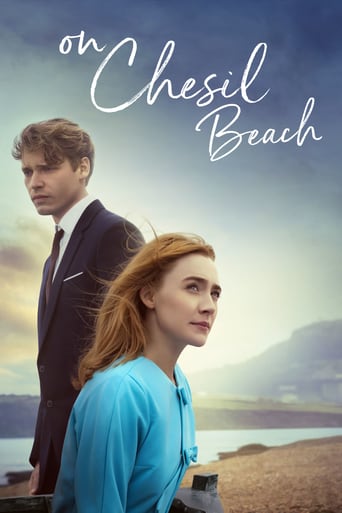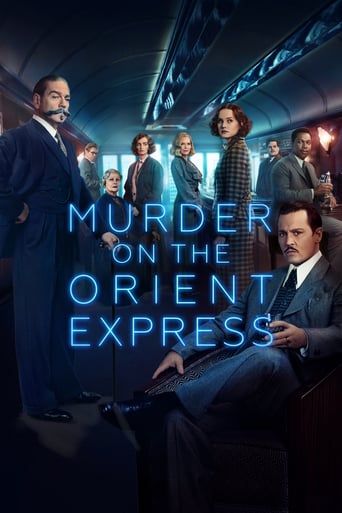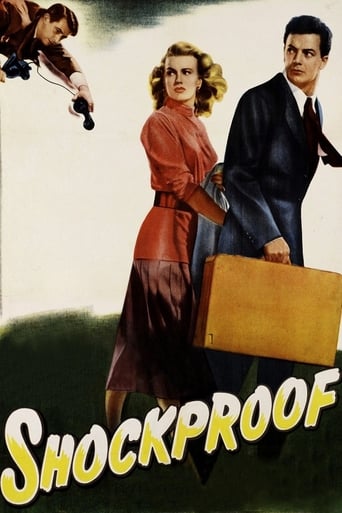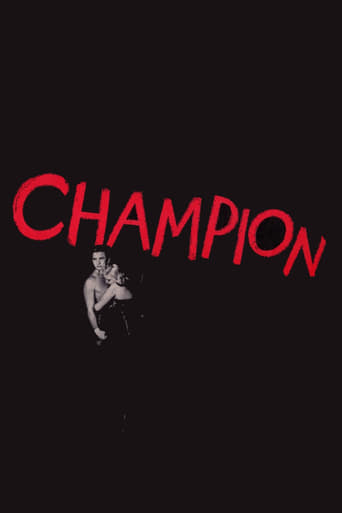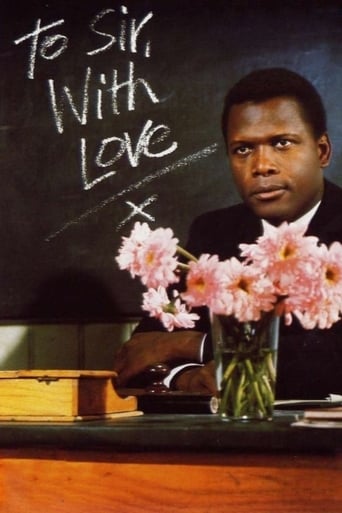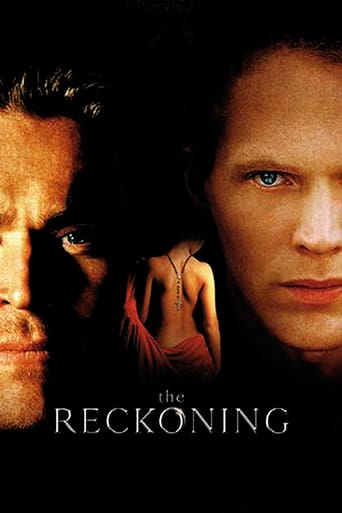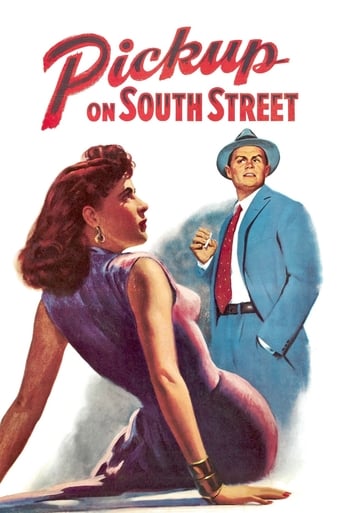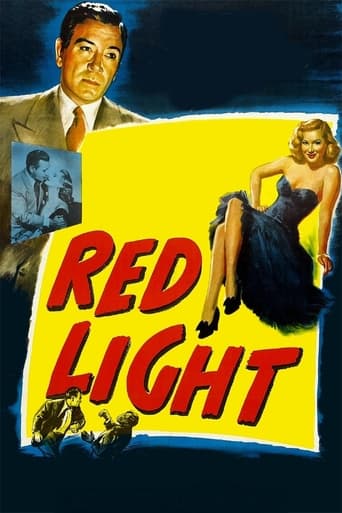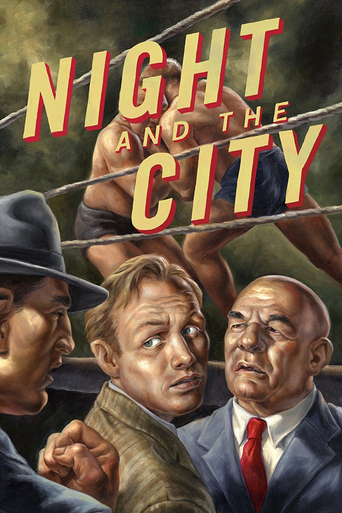
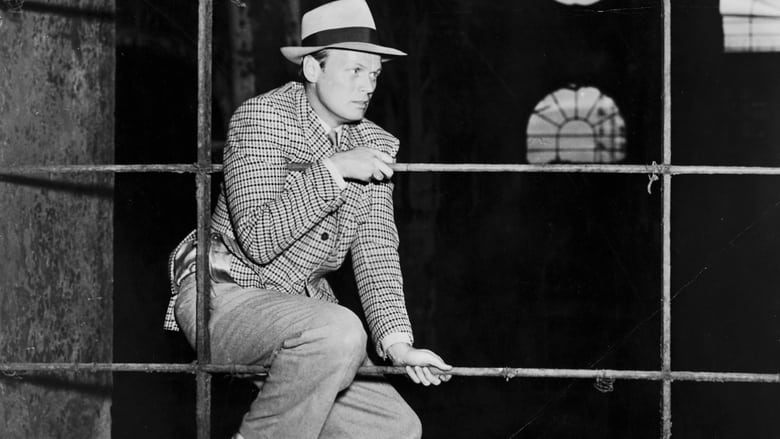
Night and the City (1950)
Londoner Harry Fabian is a second-rate con man looking for an angle. After years of putting up with Harry's schemes, his girlfriend, Mary, becomes fed up when he taps her for yet another loan.
Watch Trailer
Cast


Similar titles
Reviews
I like the storyline of this show,it attract me so much
If you don't like this, we can't be friends.
The storyline feels a little thin and moth-eaten in parts but this sequel is plenty of fun.
Story: It's very simple but honestly that is fine.
This movie's an all right way to spend 95 minutes. I didn't find it to be great, or any kind of classic.It's a low-budget, 'b' movie from 1950. It's mostly about a lot of seedy characters in the underbelly of a big city, who mostly seem in a race to see who can stab each other in the back fastest. The lead character, Harry Fabian (Richard Widmark), is particularly unlikable, a hustling, get-rich-quick schemer who, at two low points, robs his own girlfriend's purse to finance his schemes.I did read in the liner notes the director didn't think much of this film, and I agree. It gets a little too obvious, too many times. Like Widmark. We get the idea he's pretty low the first time he tries to steal from his own gal's purse. Bringing that back a second time feels a little heavy-handed.I did feel a little bit sorry for Widmark at the end when he knows he's going to die, but not really a lot. I mostly felt relieved for his girlfriend's sake, who is played by Gene Tierney. I wish there were women nowadays who looked like Gene Tierney does here. There's still plenty of women being made; so maybe it's the period clothes or Hollywood cinematography. Or maybe just the way she carries herself, with a certain amount of class, dignity, and respect.Probably the most believable strain of the story is how she's also getting interest from a decent, and better-looking, guy (Hugh Marlowe), but she sticks with her unlovable rake, Widmark. That's a human trait that's all too recognizable.Widmark winds up strangled to death and having his corpse dumped in the river, so Tierney can shrug off her lovin' the bad boy chapter and run into Marlowe's arms, who's already running towards her waiting.If you think you're getting a 'film noir classic' with this, let me warn ya: except for some of the later ones, 'film noir' was definitely a genre after the fact. Some French film critics noticed a group of post-war Hollywood movies had some dark themes, and lighting and direction to match, and started calling them that. Until then, no one involved knew, at the time, they were making a 'film noir.' They tended to be low-budget crime dramas made, as usual, to try to make money. Apparently, the post-World War II audiences wanted something harsher, so movie makers gave it to 'em. It isn't until you get to the later ones called 'film noir,' like Orson Welles "Touch of Evil," that it really seems a conscious genre choice.
NIGHT AND THE CITY is a little strange and morbid film about the life of the small but ambitious impostors who are in all ways trying to get rich. The picturesque film that at times turns into a sort of grotesque situation. Characterization is probably bad for a reason. Identification with the characters is almost impossible.Through the story can feel a certain pathos. The dark and gloomy atmosphere is constant. All the characters seem so unsatisfied and unhappy. Failed ambition of the main character leads to death, the collapse of the plan and ultimately bloodshed. Richard Widmark as Harry Fabian is pretty good. Character contorted face and body irregularities is full of obsessions. I do not think that Harry was evil figure. He simply dissatisfied and unhappy. In the end we are left without any explanation. He was just nasty creature that killed his own ambitions. Francis L. Sullivan as Phil Nosseross is extremely smart and capable nightclub owner who carries something sinister. Yes, there is one weakness.Other characters, except the great champion in wrestling, I was not impressed. Gene Tierney as Mary Bristol offered an absolute void. Sketchy and uninteresting. She is really beautiful, but it is not enough. Even the lost and certain sweetness in her image. I was always happy to think of Laura. In this case it is too late.Each effect of the film is dark and malevolent to grotesque proportions. Extremely brave attempt that ends with dark and somewhat eccentric end.
Allow me to sound pretentious and say that there are two kinds of people who judge and analyze movies: critics and reviewers. A critic is someone highly educated on the matter, an individual who may hold several pertinent degrees and who will judge a film mainly for its artistic value, regardless of having to consider at the same time the possibility that not even 00.1% of the general population may be interested in watching it. A reviewer, on the other hand, is someone with a more or less average degree of film education who'll try to put together both ends, providing a verdict about the general "watch-ability" of a flick while trying at the same time not to neglect its artistic value. I consider myself a reviewer and that's why I usually give a basic 7/10 to movies that I consider entertaining enough to recommend to anyone--like Anchorman for ex., not precisely an art house regular but one which most people will enjoy watching simply because it's funny. Another one that comes to mind is Stalker, about which critics rave but which I don't consider of any interest for the average viewer. Why I'm saying all this? Because NATC provides the best ex. of a great piece of cinema that will never reach a wide audience because, despite its indisputable artistic merits, it contains flaws that will make it forever a film only for the noir aficionado; the first one of these flaws being the lack of what I would call a "hook". And what's a hook?.See, being the noir genre a very formulaic one—-where everyone and their dog end up dead, in prison, broke, on the lam or at least sad & lonely—each noir has to offer something different, original, to make the general viewer forget that deja vu feeling. Two examples illustrate this well, the best one being Panic In The Streets. Here the bad guy is not a human but a lethal germ which some criminals on the lam are carrying and who Dr. Widmark has just 48 hr. to locate and neutralize. Talk about not one but two hooks! Where The Sidewalk Ends has, as a hook, the cop himself being the son of a gangster; and also he having to conceal his killing of a suspect. Again, not one but two hooks. Maybe now you'll understand why NATC is so "underrated" and why has never reached a wider audience: because it got no hook! (even critics recognize that when stating that, from the very first shots we know that Fabian will be dead by the movie's end). One reviewer offered a different POV that leads anyway to the same conclusion, when writing that the problems of these characters do not come from fate, bad luck, but as the logical consequence of their own personal flaws. We can go even further in the deconstruction and say that there is absolutely nobody here, men, woman, who is being forced to stay in their situation. All of them are free to walk at any moment out of their bad relationships, deals, which is the best way to detect a loose plot. Already we got two flaws and that's only the beginning. Fact is, despite NATC being a great piece of cinematography it lacks what's needed to keep you on the edge of your seat: the underlying tension, the expectations for the shocking or the unlikely to happen. For ex. compare the situation of the two good people here, Gregorious and Mary--who could have walked at any time out of their problems--with that of the characters in the noirs I mentioned, none of which had any choice but to face the situation they were in. That's what makes of these pretty exciting movies to watch while NATC is not. As the reviewer said, you cannot relate to people who are in a mess of their own doing--and from which they can extricate at any time, I'll add. NATC has no real pathos, not Damocles' sword hanging over the head of the characters, except of course that put there by their own greed, loyalty or disloyalty, stupidity, etc. Harry is pathetic, yes, but we don't truly care for him and we can sit back and marvel at his capacity to poison everything he touches. The only one nearly producing some kind of pathos is Gregorious, with his undying passion for Greco-Roman wrestling.As I have neglected about the plot, let's simply say that it's about (very) small time hustler Harry Fabian, U.S. expatriate in London in the early 1950s, who's always concocting ways to swindle people and who finally thinks he got the break of his life when a former wrestler—Gregorious-—comes his way, giving him the opportunity to start a career as a promoter. But money is needed and it is trying to get this money that Harry manages to ruin the life of everyone around him, including his own. As I said, the lack of tension comes from the fact of Harry being a highly unlikable character--I don't know where critic(s) got the idea of him being touching or likable--and that we know from the beginning that he won't outlast the movie. So, while the cinematography is very good, there's little meat for those viewers who use to silently whisper to filmmakers, when sitting to watch their flicks: "Surprise me". There are some good scenes, though, the best one showing an intense wrestling match between Zbyszko's Gregorious and Mazurki's Strangler and then the old fighter, who had spent all his energies in winning it, dying on his son's arms. They both make for the most climactic part in the movie. In all, recommend only if you are really into noir. I say 6.5/10, but make it a 7/10 if you really consider Gregorious' passion for traditional wrestling a hook.
O.K. kiddies The Monkey has a terrific one for you today. It is a superb late Film Noir from England called Night And The City. Now, part of the reason The Monkey is such a bastard half the time, is because he watches way too much Noir. I mean here is a genre that screams ' it does not matter what you do, because you're screwed anyway' with a super happy fun-time sub-theme of, the harder you try to claw your way out, the further back you will find yourself.Night And The City is directed by the masterful Jules Dassin, who also directed the equally impressive noir The Naked City as well as two of the originators of the heist genre, Riffi and Topkapi. Dassin was blacklisted while he was shooting Night And The City, and let me tell you any person that is held suspect by THE MAN is my kind of people.Night And The City is about a two-bit bar hustler named Harry Fabian (Richard Widmark, my favorite Noir actor), who stumbles upon a plan to corner the market in wrestling. Unlike his numerous other schemes, this one just may work. Arrayed against him are the principal mobster in London Kristo (the appropriately shady Herbert Lom), Fabian's lover Helen Nosseros (Googie Withers), and his business partner (and Helen's husband) Philip Nosseross.One of the highlights of Night And The City is the cinematography. Unlike many Noirs where low-key light is simply a method representative of film noir, and the city is its setting, Night And The City imbues them with a living palpable menace. The darkness is not just a lack of light, but instead comes from the dark souls of those with whom Fabian has surrounded himself. The darkness shrouds the many dangers of Fabians own dark and exploitative nature. It also hides the assassins after Fabian, more than it hides him. It is in the darkness that Harry drags himself, and all those around him, to their inevitable demise.In other Noirs, there is often the false belief that protagonist can get ahead if he just leaves the city. Often they do, and their deeds follow them. In Night And The City, there is no such hope for Fabian. London is his prison, and its tenement's and towers only force him onward, onward, in his mad dash towards his hoped for impossible escape from the city. These hopes of escaping across the Thames by boat or by bridge are thwarted by the opportunistic waterfront thieves and swindlers he had once called his friends, the bridges guarded by thugs in the employ of Kristo.Night And The City also makes a fun drinking game. The rules are easy, every time someone uses a derivative of the phrase "You're a dead man" to Fabian you take a drink. Now The Monkey can't recommend this as you are likely to pass out long before the conclusion of the film. That is unless of course getting blind stinking drunk is your goal. Whatever your plan may be, I urge you to watch this movie as soon as you can. If nothing else, it will make all of your troubles seem trivial compared to those of Harry Fabian.


